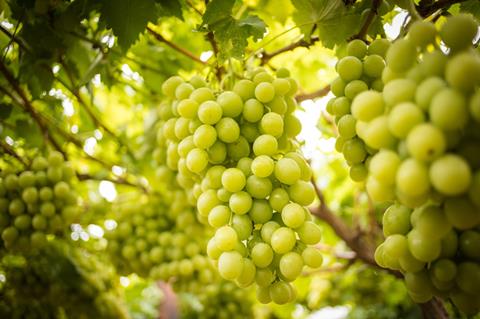Industry association chief Mecia Petersen suggests retaining market share in expanding markets like the US must be priority

South Africa exported 77.8mn cartons of table grapes in 2024/25, the highest volume on record and 5 per cent more than it did during the previous season.
According to Sati, the country’s table grape industry association, South African grapes continue to enjoy good demand in global markets, including the EU, which took 58 per cent of shipments, and the UK, which with 18 per cent was the single-largest country market.
Growth was also seen in other key markets, it said, with exports to North America (Canada and US) up 25 per cent year on year to 7.4mn cartons.
In 2024, South African table grape exports were worth about USD730mn globally.
“The industry is encouraged by growing exports to the USA, and we are closely monitoring developments regarding potential new tariffs that may impact the sector,” said Sati chief executive officer Mecia Petersen.
South Africa has exported fresh grapes to the US for over two decades, and that trade has apparently increased at an average rate of 19 per cent per year over the last five years.
In 2024/2025 season, trade with the US represented about 3 per cent of total table grape exports, equivalent to approximately 2.2mn 4.5 kg cartons or 9,878 tonnes.
“Volumes to this market have grown exponentially over the past five seasons, and Sati believes there is room for further growth,” Petersen commented. “Industry engagements conducted in 2024 and 2025 indicated that USA-based role-players had an appetite for increasing volumes of high-quality grapes sourced from South Africa.”
Complementary campaign
South African table grapes ae seen as a good fit for the US market, as they offer a counter-seasonal source of supply.
A higher tariff on South African fruit compared with other Southern Hemisphere exporters who are active in the same marketing window, such as Peru and Chile, would put local producers at a disadvantage.
“Retaining market share in existing markets, such as the USA, remains a key priority for the industry, and we are committed to working with government and stakeholders to secure a favourable trade environment with the USA,” Petersen said.
As the global table grape market becomes increasingly competitive, with increased production from emerging and established producing countries, a careful mix of market consolidation and diversification will be required.
“Market diversification is important for export-driven industries,” she added. “However, it is impacted by various factors and accessing new markets is not a straightforward or quick solution.
“Market access processes can take many years, and favourable market conditions are influenced by the tariffs South Africa may face in destinations compared to other exporting countries. Finding alternative markets to absorb volumes currently shipped to the USA is not a desirable solution.”











